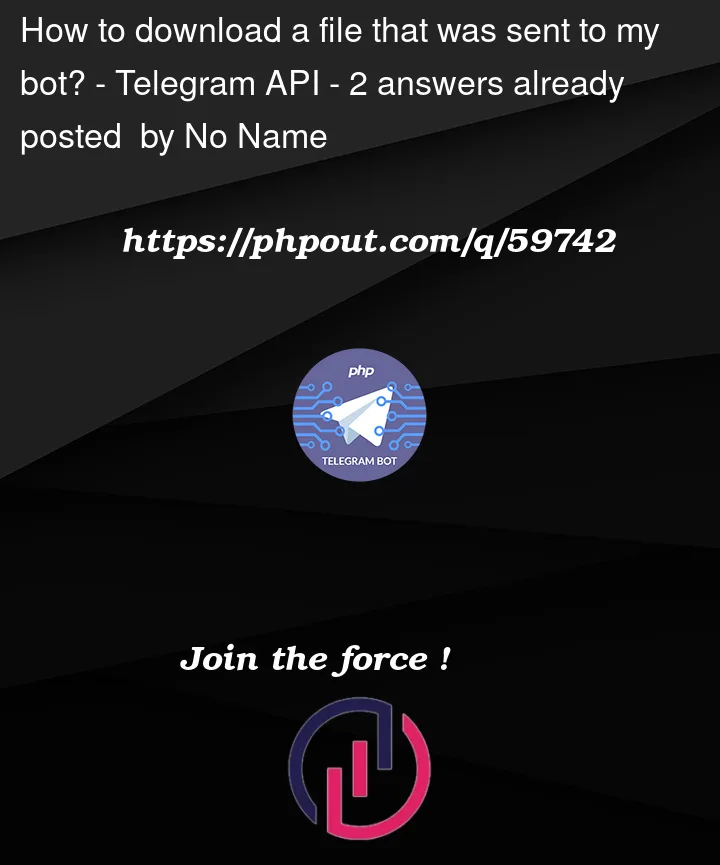@dp.message_handler(content_types=types.ContentType.DOCUMENT)
async def scan_message(file: types.File):
print("downloading document")
file_path = file.file_path
destination = r"C:usersaleksPycharmProjectspythonProjectfile.pdf"
destination_file = bot.download_file(file_path, destination)
print("success")
I would like to be able to download a file (in this case it is pdf) that was sent to my bot by the user. But the problem is that the bot doesn’t even recognize a file (when I send a file, it doesn’t even print "downloading document")




2
Answers
You did not specify version of aiogram. I guess it is 2.x.
All asynchronous function registered, as message handler must take the first positional parameter received message. If you like type hints you must to specify your function as
for download your document you need just:
so correct handler for download document is:
TL;DR
I hope you’re using aiogram v2.x.
Make sure that’s the only handler for
types.ContentType.DOCUMENTwithout filters and your bot can get needed updates, then:Detailed
Everything described below applies to stable aiogram v2.x.
aiogram.Dispatcherclass parses raw telegram Update and sends it parsed and unpacked to corresponding handler, e.g.dp.message_handlerwill receiveaiogram.types.Messagefor updates containingmessage,dp.callback_query_handlerwill receiveaiogram.types.CallbackQueryfor updates containingcallback_queryand so on. In your case you are expectingaiogram.types.File, which is wrong. Then dispatcher checks filters and calls corresponding handlers in registration order and stops dispatching if any handler was called.Consider the following example:
You send any text message then look at bot’s console. There will only "handled 1" be printed because it was the first matching handler and only one handler is called.
Bots have so-called "Privacy mode" in group chats, so not every message comes to your bot in a group. This is not the case in private (direct) messages, so it’s better to test your bot in private. You can read more about Privacy mode in official Bot API docs: https://core.telegram.org/bots#privacy-mode.
It’s better and more readable to use shortcuts which are contained in each class, e.g. you can
.reply()or.answer()to aaiogram.types.Message, which is a shortcut foraiogram.Bot.send_message(). Same with downloading file, you can just use.download()onaiogram.types.Document,aiogram.types.PhotoSizeand so on. You can find more downloadable types by looking for classes that implementaiogram.types.mixins.Downloadable.All
.download()methods return destination where the file was saved. If you pass your own optional destination as the first argument to the method, it’ll be useless to get it back as you already know it.So, after these modifications, you’ll get the code as in TL;DR section.